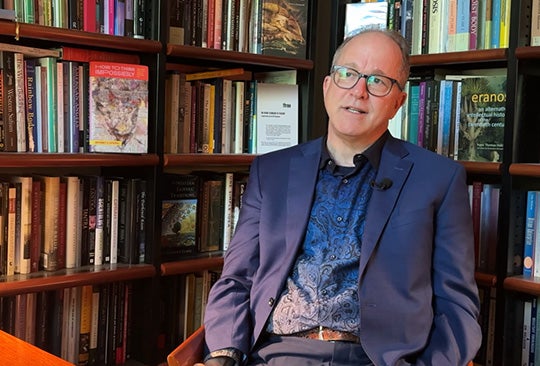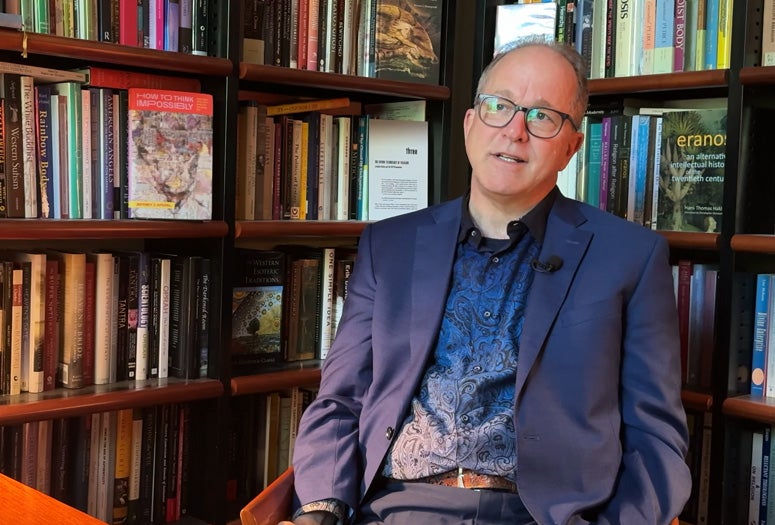With World UFO Day approaching July 2, journalists covering questions of extraterrestrial life and unexplained aerial phenomena can find a rare trove of expertise and primary source material at Rice University’s Archives of the Impossible.
Housed within the Woodson Research Center at Fondren Library, the archives have amassed more than a million documents, recordings and files related to unexplained phenomena — from remote viewing government programs to thousands of abduction accounts and letters from experiencers. The center’s rapid growth has made it one of the world’s most significant collections on the subject.

“We’re not studying the phenomena so much as the people who experience them and what happens to those people and their communities over time,” said Jeffrey J. Kripal, the J. Newton Rayzor Professor of Religion at Rice and one of the archive’s founding architects.
The archive got its start in 2014 with a conversation between Kripal and renowned ufologist Jacques Vallée. It now includes 18 collections — among them the Anne and Whitley Strieber “Communion” letters, a rich compilation of 3,400 responses from individuals who identified with the alien face depicted on Whitley Strieber’s bestselling book cover.
“These stories are part of the human experience,” Kripal said. “They’ve been ignored or laughed at for so long. We want to create a space where they can be taken seriously, carefully and respectfully.”
Though the physical archives are stored off campus in a climate-controlled facility, materials can be requested and reviewed in Fondren Library’s reading room. Researchers can also explore oral history interviews and supplementary materials in Rice’s Digital Scholarship Archive.
“The taboo nature of this material has kept it in the shadows,” Kripal said. “That’s changing now, and the archive is one reason why.”
The Archives of the Impossible have also catalyzed serious academic inquiry. Conferences in 2022, 2023 and 2025 drew global attention, including more than 300,000 online views with speakers from across disciplines exploring topics like alien contact, consciousness and alternate realities.
“We’re just beginning to discover what this archive contains,” Kripal said. “It’s not just a collection. It’s a new frontier.”
For more information or to arrange an interview with Rice experts, contact media relations specialist Brandi Smith at brandi.smith@rice.edu or Chris Stipes, executive director of news and media relations, at chris.stipes@rice.edu.

